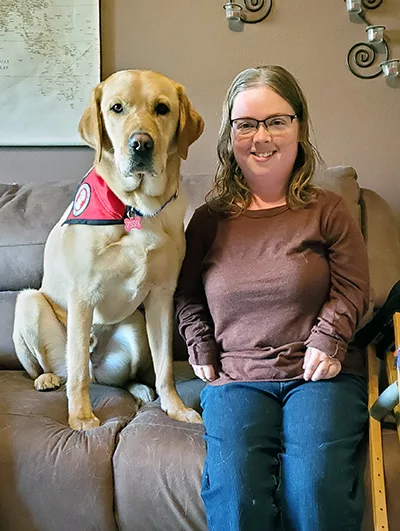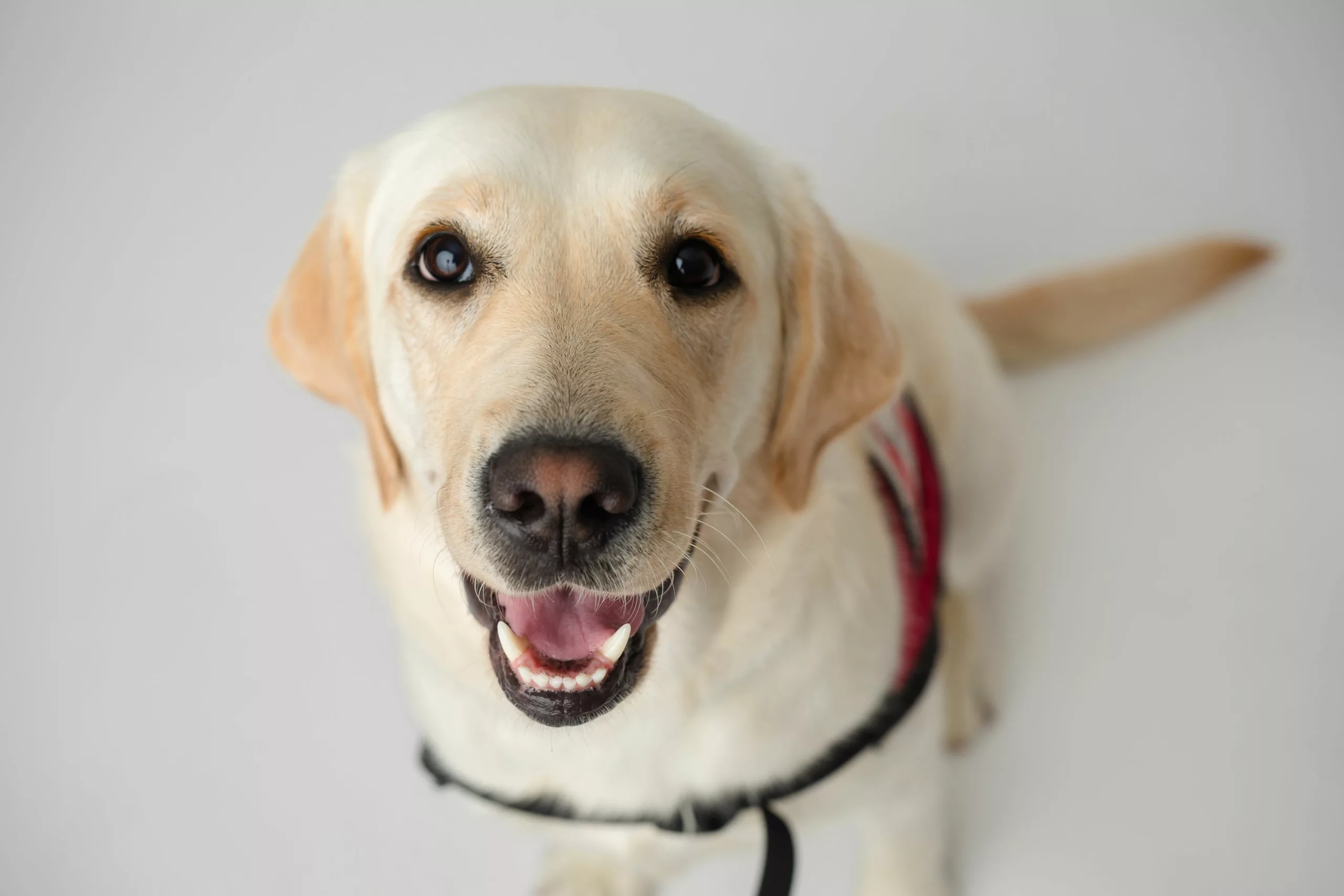Carrie, who battles juvenile rheumatoid arthritis and osteoporosis, first applied to Can Do Canines while in college in the early 2000s. She was accepted for a Mobility Assist Dog, but with the stress of graduating, moving, finding a job, etc., she decided to defer going through the process.
In 2019, Carrie had a major neck surgery, which “really changed things for me,” she says. “Mobility has been getting harder the last few years.” She explains that with continual bone deterioration and the use of crutches, she has difficulty picking up items and performing other needed motions. Carrie lives alone and was feeling less and less comfortable doing so. She explains that sometimes if she dropped something, “I'd have to wait until somebody came over or call somebody over to have them help me pick it up.” Of course, if it was her phone on the ground, she couldn’t even make a call. “I was very dependant on others,” she states.
 So she reapplied with Can Do Canines and was matched with a yellow Lab named Ion. She remembers how nerve-wracking it felt waiting for the initial introduction with him, but was quickly put at ease. “When I actually got to meet him, when I actually saw him walk in, it just all went away,” she says.
So she reapplied with Can Do Canines and was matched with a yellow Lab named Ion. She remembers how nerve-wracking it felt waiting for the initial introduction with him, but was quickly put at ease. “When I actually got to meet him, when I actually saw him walk in, it just all went away,” she says.
With matching laid-back personalities, Carrie and Ion clicked from the get-go. Carrie says, “Our relationship is building so quickly.” Perhaps that is partly because Ion is so eager to help Carrie with whatever she needs. Whether it is carrying her bag, tugging open drawers and cupboards, removing her shoes and socks, or yes, picking up anything Carrie drops, Ion is ready to work. “Even if it looks like he's in a deep sleep, he is always kind of listening and paying attention,” says Carrie.
Ion gets Carrie’s attention, in return, with his expressive emotions. Carrie describes, “He always has puppy eyes. It doesn't matter if he's excited or if he's tired or whatever, he just always looks up at you, you know, with his little puppy eyes, and … oh, it's hard to resist him.”
Ion is equally expressive when going to work with Carrie. As a programmer at Schwan's Company, Carrie brings him to the office the four days each week she goes there. She explains how Ion is charged and ready when approaching the building, saying, “He gets super excited to push the buttons to open up the doors when we go in and out. He's just always like, ‘Okay, is it time yet? Is it time yet?” After the button-pushing fun, he follows up by looking at Carrie, seeming to ask, “Did I do a good job?” Ion is also fine with Carrie’s computer mouse in his mouth anytime she needs it picked up, and Carrie is relieved not to have to find another human anymore for assistance—whether at the office or elsewhere. She shares, “He is really helping to ease my anxiety about going out and doing things because I know he'll be there to help me.”
Carrie is especially grateful for Can Do Canines, and admits that when considering other options for service dogs, “There’s no way I could have afforded that.” Although the amount of information to consume during the process of welcoming an assistance dog can be overwhelming, Carrie appreciates the comprehensive client manual and says notes that “the relationship that I have with the team there at Can Do [Canines] is a huge help.”
Also of help to Carrie is Ion. “He’s helped me in more ways than I anticipated,” she says.
Thank you to all those who made this partnership possible:
Whelping Home — Kolleen Herr
Great Start Home — Lisa Marie Fortier & Ryan Hempel
Puppy Raiser — Jackson Correctional Institution
Special Thanks — Lisa Marie Fortier & Ryan Hempel
Name-A-Puppy Donor — Claire Holmgren and Family

 The Mighty Thor Takes on a New Role for Nancy
The Mighty Thor Takes on a New Role for Nancy




